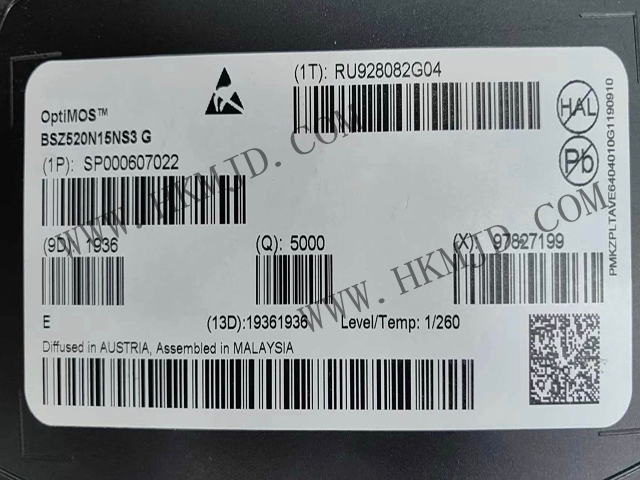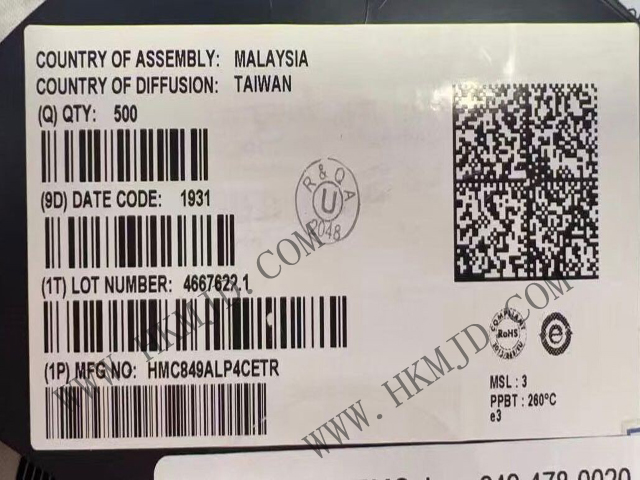Welcome Here Shenzhen Mingjiada Electronics Co., Ltd.

sales@hkmjd.com

sales@hkmjd.com

Service Telephone:86-755-83294757
 Latest Information
Latest Information Home
/Industry Information
/
Home
/Industry Information
/
Apple to push first in-house WiFi chip with 5G baseband chip, no millimetre wave support
Recently, according to media reports, Apple will launch its first self-developed 5G baseband, but this baseband chip has an inherent flaw that does not support millimetre wave. This also means that Apple will continue to source Qualcomms 5G chips unti…
Recently, according to media reports, Apple will launch its first self-developed 5G baseband, but this baseband chip has an inherent flaw that does not support millimetre wave. This also means that Apple will continue to source Qualcomm's 5G chips until millimetre wave support is implemented.
Previously, Apple analyst Ming-Chi Kuo had revealed that there are two mobile phones equipped with Apple's self-developed 5G baseband will be launched, the first model is the iPhone SE 4, and the ultra-thin model of the iPhone 17 Air in the second half of next year will also use Apple's self-developed 5G baseband.
Apple's layout
Currently, the global 5G network frequency band is mainly divided into two pieces, Sub-6GHz and millimetre wave (mmWave), in which the millimetre wave transmission speed is faster, but the transmission distance is shorter, which is suitable for densely populated urban areas. While Sub-6GHz transmission speed is relatively slow, but the signal propagation distance is farther, more suitable for suburban and rural areas.
Some analysts believe that the iPhone SE4 is mainly for cost considerations, so not supporting 5G millimetre wave is a normal business choice, while the iPhone 17 Air is designed to achieve a thin and lightweight design, and not supporting millimetre wave is a compromise made by Apple for the sake of design.
Interestingly, after the previous settlement between Apple and Qualcomm, the 5G baseband chip supply agreement with Qualcomm has been extended to March 2027, which provides sufficient time for Apple's self-developed 5G baseband chip development and deployment. If Apple can successfully lay out its self-research baseband chip in 2025, then the development of millimetre wave support will not be too far away.
In addition to the baseband chip, recent foreign media have also repeatedly reported that Apple is self-researching Wi-Fi chips and Bluetooth chips, in order to enhance the control of the chip, thereby reducing the dependence on suppliers. One of the self-developed Wi-Fi chip is also expected to start commercialisation next year, supply chain news shows that some of the newly launched iPad will be equipped with Apple's self-developed Wi-Fi chip. However, there is also news that the chip may not make its debut until 2026 when the iPhone 18 series is released.
The idea of a homegrown Wi-Fi chip has been rumoured in the market as early as 2021. But the development of this chip is not smooth, in early 2023, there are reports that Apple suspended the development of Wi-Fi chip, but then Apple restarted the development of the chip.
It's clear from the start of the Wi-Fi chip's development that Apple is also looking to reduce its reliance on its Wi-Fi chip supplier Broadcom, and is working on designing more hardware components on its own rather than relying on external suppliers.
In addition to its desire to control key fundamentals and improve product competitiveness, another important reason for Apple's continued push to develop its own chips is to improve Apple's own profit margins.
According to a report released by Wall Street research firm Wolfe Research, as Apple begins to import its own 5G baseband chips in the iPhone 17 series, it is expected to reduce the revenue Apple contributes to Qualcomm by 35%, and will continue to reduce by 35% by 2026.
According to a UBS report, about 21% of Qualcomm's $44.2 billion in revenue in fiscal 2022 will come from Apple. If that percentage stays the same, then by the time next year rolls around, Qualcomm's revenue from Apple will be down to about $6.03 billion, a reduction of $3.25 billion. By 2017, it will plummet even more to $3.92 billion. And those reduced payments to Qualcomm will translate into profits for Apple itself.
On the other hand, from a technical point of view, as Apple began to research its own 5G baseband chip, Wi-Fi chip and Bluetooth chip, it is expected that in the future these self-developed chips will be integrated with its own A-series chips, then the long time impact of Apple's iPhone signal, heat, power consumption and other issues will be solved.
Can enhance the control of the supply chain, but also to enhance the competitiveness of the product, but also to reduce costs and increase efficiency, in this way, the final SoC peripheral chip all integrated into the A series of chips, should be Apple's bright card of the ‘yangmou’.

Time:2025-08-19

Time:2025-08-19
![Mingjiada Supply [ADI] LT3502AEDC 500mA, Step-Down DC/DC Regulators](/upload/202508/19/202508191511211474.jpg)
Time:2025-08-19

Time:2025-08-19
Contact Number:86-755-83294757
Enterprise QQ:1668527835/ 2850151598/ 2850151584/ 2850151585
Business Hours:9:00-18:00
E-mail:sales@hkmjd.com
Company Address:Room1239, Guoli building, Zhenzhong Road, Futian District, Shenzhen, Guangdong
CopyRight ©2022 Copyright belongs to Mingjiada Yue ICP Bei No. 05062024-12

Official QR Code
Links: